Stone Sour’s Josh Rand: the records that changed my life
Plus the lowdown on the gear used on new album Hydrograd
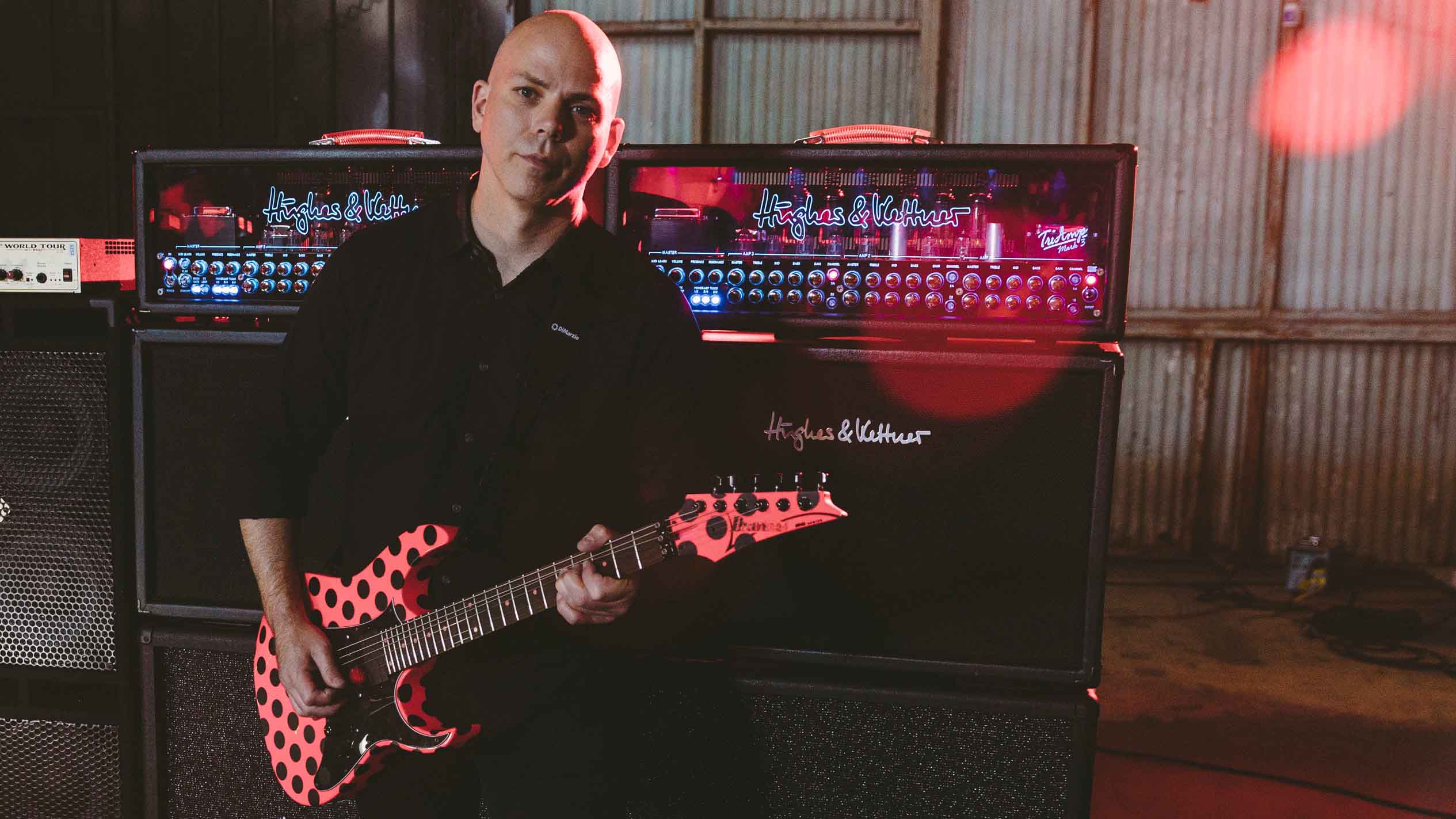
Hydrograd
“For me, the newest secret weapon is a pedal I picked up from Electro-Harmonix called the Talking Machine,” reveals Stone Sour guitarist Josh Rand, sat inside the blissfully cool, air-conditioned Gibson Guitar office on a feverishly hot day in the English capital.
“It’s engaged for a lot of the main riffs throughout the record. That pedal really surprised me… I picked it up purely because it sounded funky and unique; I had no idea I would end up using it so much.”
The new addition would serve the guitarist well during the long recording sessions for sixth studio album Hydrograd. More than any other recording he’s committed his name to, Josh spent countless hours dialling in the right guitar tones - adopting a new mentality that, despite adding to the workload, paid dividends in the sheer breadth of guitar sounds heard across its 14 tracks…
I brought 90 pedals with me… there was no joke when it came to the guitar sounds on this record!
“I wanted to change it up per song, discovering what settings would suit each piece best over finding one setting throughout,” Rand continues, of his meticulous curating alongside producer/engineer Jay Ruston.
“I mainly stuck with what I use live: a Hughes & Kettner TriAmp Mark 3, a bunch of Ibanez guitars with different pickups in them, from DiMarzio and EMGs… though I actually just switched over to Fishman recently.
“There was a lot of gear - we went through so many amplifiers between what I’d brought and what the studio owner had, which included every Friedman, Mesa, etc... and that’s not even counting all the combos he owned. I used some of the classic vintage Fender stuff for clean sounds. I brought 90 pedals with me… there was no joke when it came to the guitar sounds on this record!”
Well, maybe one tiny joke. The hot pink Ibanez guitar the guitarist has been seen holding in various photoshoots, videos and appearances was more of an accidental inclusion to his live arsenal. It’s a throwback to the guitarist’s 80s shredder heroes - of which you’ll hear plenty about in the album choices listed below…
“I’ve had that guitar since 2013. I bought it as a joke, to be honest, as more of a bus guitar. Roy [Mayorga, drummer] and myself went to Guitar Center right before the first show of the last album cycle. He needed drum stuff and I was after a cheap guitar that I didn’t need to care about getting lost, broken or stolen!

“I really didn’t find anything, so we were walking out when I spotted it tucked behind the counter. I asked why, and they’d marked it down to basically nothing - they were losing money on it because nobody wanted to buy it. Immediately, I asked for a case to take it home; I didn’t even try it.
“I brought it back to the venue, of course everyone gave me shit about it,” grins the axeman. “It somehow became a bet, with money involved, that I wouldn’t use it live. And I’ve won a lot of these bets over the years… so of course I’m gonna take the money. Play that guitar and get $300? Sure!
“But none of us knew how the lighting would hit it… the thing just glows. As the tour came to an end, I decided to polka dot it, and now it’s all people want to see, haha! For our last few video shoots, I brought four guitars along, and the directors would always insist on the pink one.”
Here, the Stone Sour guitarist picks the 10 albums that changed his life…
Hydrograd is out on 30 June via Roadrunner Records.
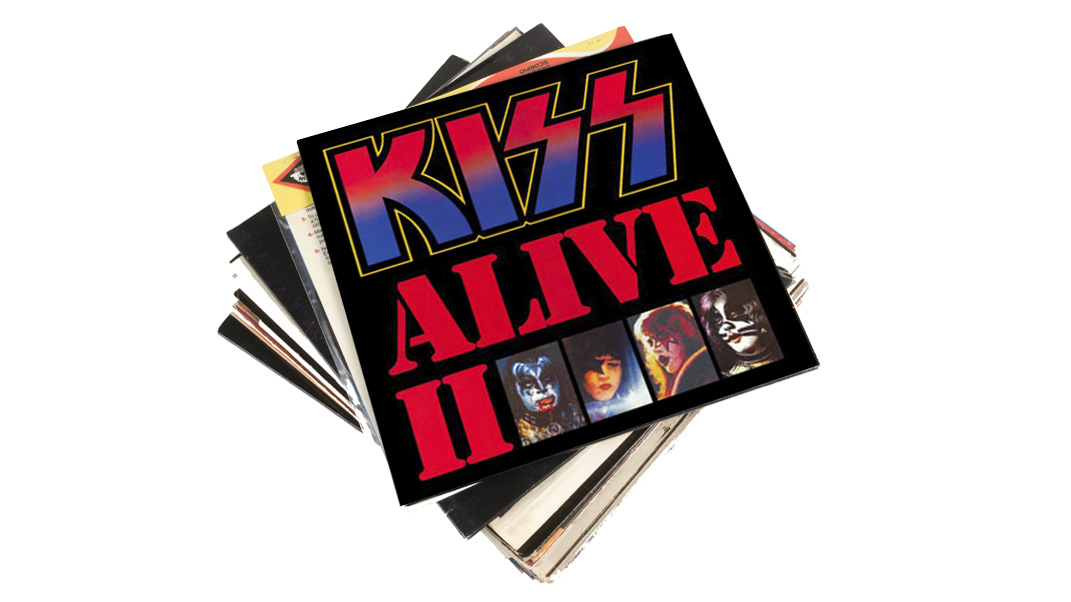
1. Kiss - Alive II (1972)
“I must have been about three when I first heard this. My family have told me stories that I knew all the KISS lyrics at such a young age and there are photos between three and five of me with KISS shirts on. My uncle lived with us for a bit - he was a bit older, and that’s how I got turned onto their music.
“I could have gone with any of their fourth, fifth or sixth records - Destroyer, Rock And Roll Over or Love Gun - but I just love the energy of the live records. This one makes the most sense because it has all the songs I like, and I’d say the live versions are better than the studio ones.”
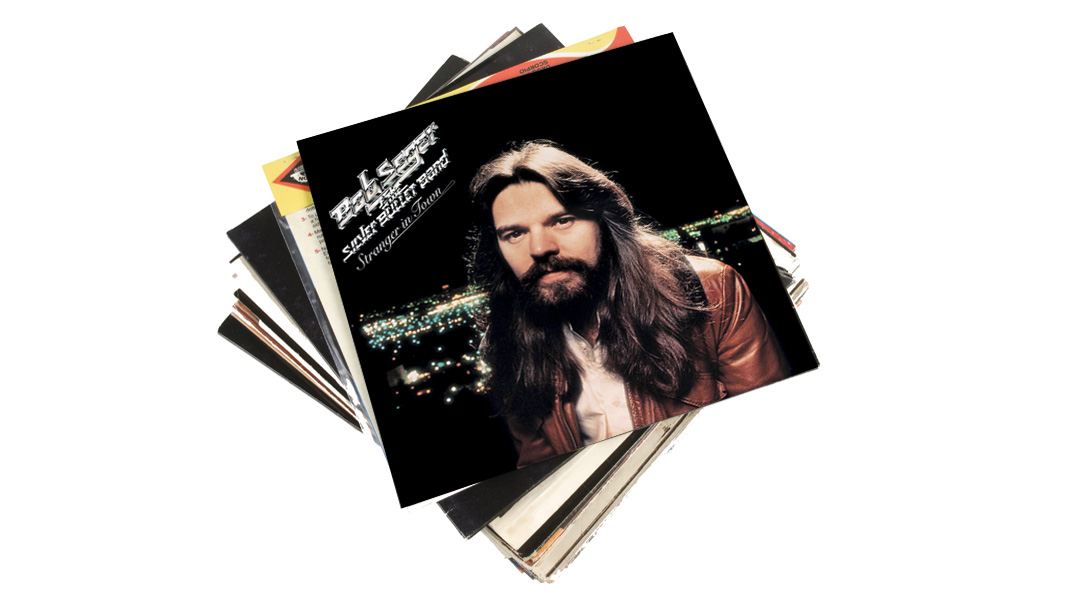
2. Bob Seger - Stranger In Town (1978)
“This might surprise some people. Growing up in the mid-west, Seger was like a god out there. My parents played the hell out of it and now it’s almost like a comfort record for me. I know every note to every song. I feel like this album could be a greatest hits of his.
“It’s a very energetic and diverse record, from start to finish. Hollywood Nights has this really driving tempo and Old Time Rock And Roll is a classic, then you have the ballad-y stuff. It might surprise people, but I think it’s such a fantastic record. The musicianship of this band on this album and others is as good as any!”
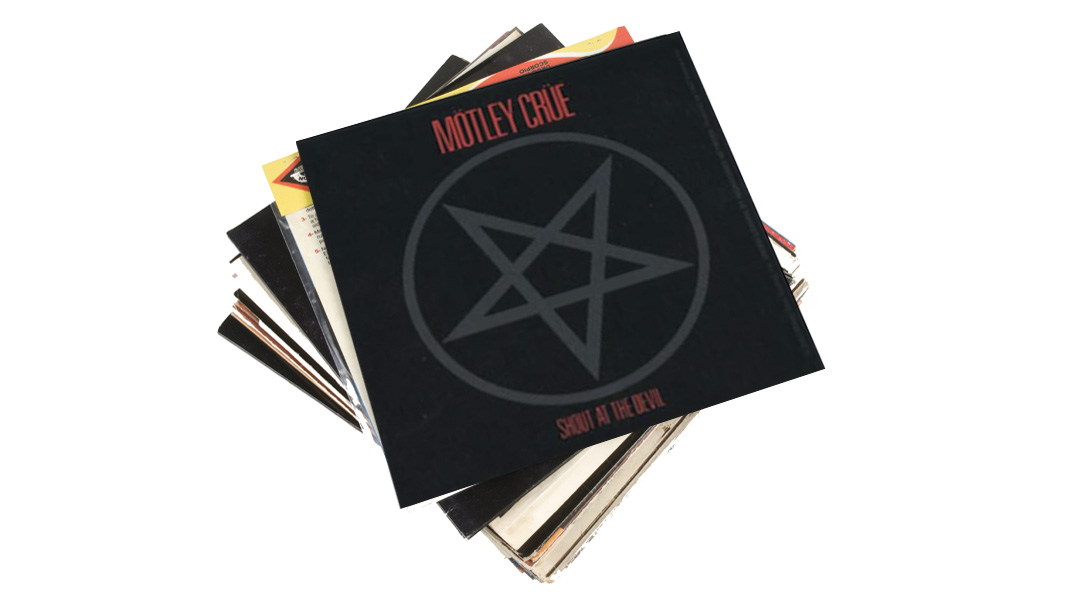
3. Mötley Crüe - Shout At The Devil (1983)
“I kinda bounce back and forth between this and Too Fast For Love. I decided to go with Shout At The Devil because it had just a bit more impact on me. Again, it’s a band my uncle turned me onto and my parents actually hated it! I played the shit out of it, over and over again.
“It was kinda the beginning of me breaking away from what my parents were listening to - Bob Seger, Elton John, Led Zeppelin, Billy Joel and all that stuff. Mötley became the first band for me - they were my band, not just one of the bands the family were listening to.
Say what you want about Crüe - they might fall in that hair metal trap - but Mick Mars is wonderful
“Mick Mars is amazing, even on the last tour, when he was really fighting this disease he’s had that messes with his mobility - he sounded unbelievable and gave 110%! Say what you want about Crüe - they might fall in that hair metal trap - but Mick is wonderful.
“Everybody in that band is fuckin’ great: can you name a better rock drummer than Tommy Lee? I don’t mean chops, but power groove. The only person I can think of like that is Dave Grohl. Those guys have a swing to how they play… it’s killer!”
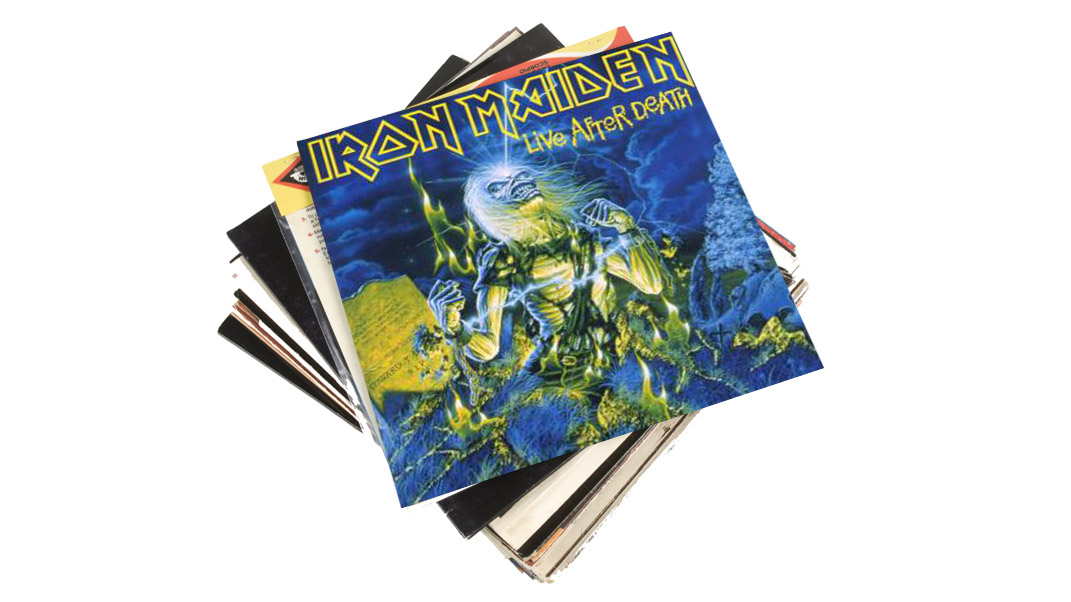
4. Iron Maiden - Live After Death (1985)
“This is the greatest live album ever recorded. Every song is better than the studio version… it’s just awesome. All the harmonies and leads from Dave Murray and Adrian Smith are unbelievable. I love the sheer power Bruce Dickinson has on this record, too.
“All three of the guitarists are great, but I would probably lean more towards Adrian from a songwriting standpoint. Wasted Years is my favourite song by them overall, but they’re all fantastic players that complement each other well.”
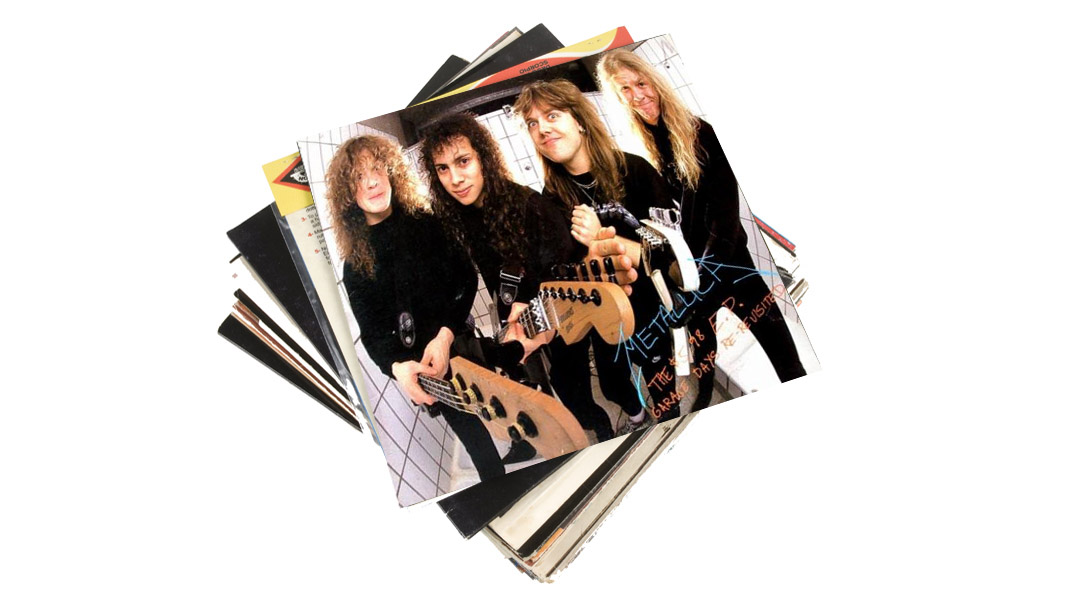
5. Metallica - The $5.98 E.P.: Garage Days Re-Revisited (1987)
“I could have picked any Metallica record, and of course everyone else will have gone with fuckin’ Master Of Puppets, haha! The reason I chose this is because it marked the beginning of me wanting to play an instrument.
“I started out on bass guitar and all I wanted was to be Jason Newsted. So I’d spend hours trying to play these songs. There’s energy through the entire thing - they took these five covers and truly made them their own songs.”
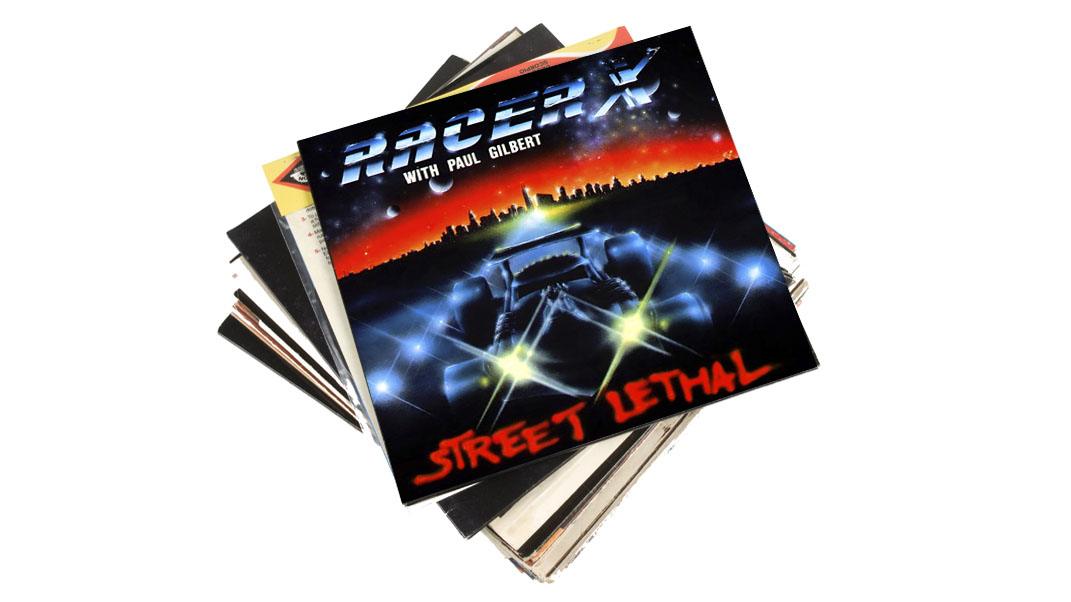
6. Racer X - Street Lethal (1986)
“A friend of mine’s older brother turned me onto this band. At the time, people would buy records to try them out - it wasn’t like today where you have iTunes or YouTube to listen to things. You had to take chances. It was through word of mouth or just finding an album cover you liked. I was told to check out this guitar player - and what I heard was so good, it made me switch from bass! Hearing Frenzy for the first time was a mind-blowing experience for me.
I would read about other players talking about the first time they heard Hendrix, and that’s how I felt about Paul Gilbert
“I would read about other players talking about the first time they heard Hendrix, and that’s how I felt about Paul Gilbert. His playing, especially considering how young he was at the time, is just ridiculous.
“That run he does in Y.R.O. after the Paganini breakdown is just a flurry of notes that makes you wonder what the hell just happened. I knew who Yngwie was and totally dug into his catalogue - but everything Malmsteen was playing felt like harmonic minor. To hear that style done in straight minor or pentatonics. It didn’t really sound like Yngwie; he made it his own. Paul Gilbert is a phenomenal player.”
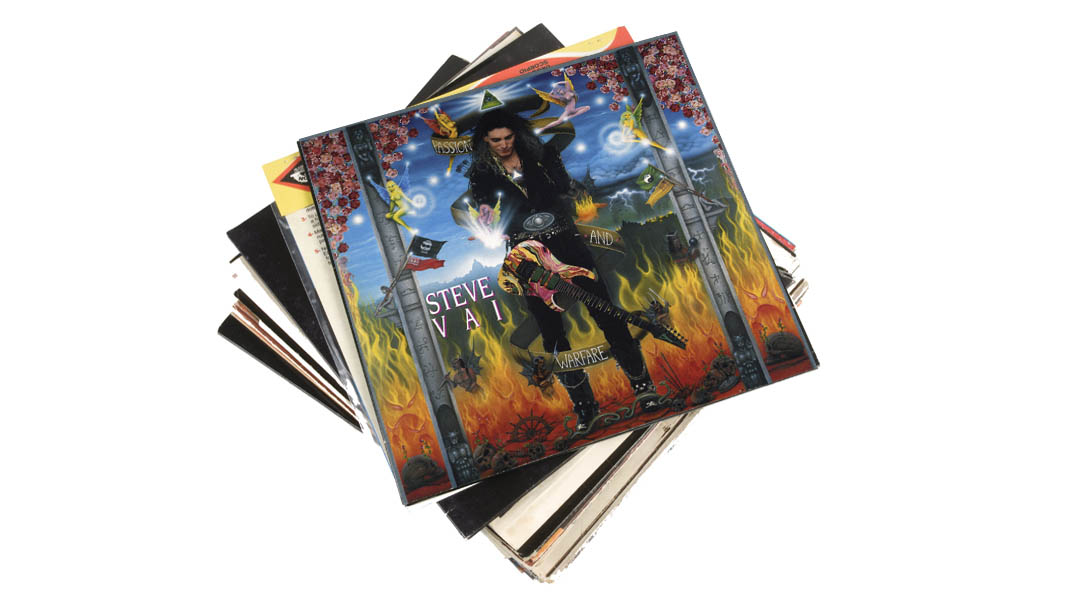
7. Steve Vai - Passion And Warfare (1990)
“Arguably, the greatest rock instrumental ever recorded. I was going back and forth between him and Satriani, but chose Vai because he’s phenomenal and doesn’t get enough credit for scoring all the orchestration behind him.
“There’s so much going on there… if you listen to the naked tracks with his leads removed, it’s crazy how much stuff goes in and out.
“From a rock guitar standpoint, how do you even top that? It’s such a ride, with songs like For The Love Of God, Ballerina 12/24, Blue Powder, The Audience Is Listening not being just the same thing over and over.”
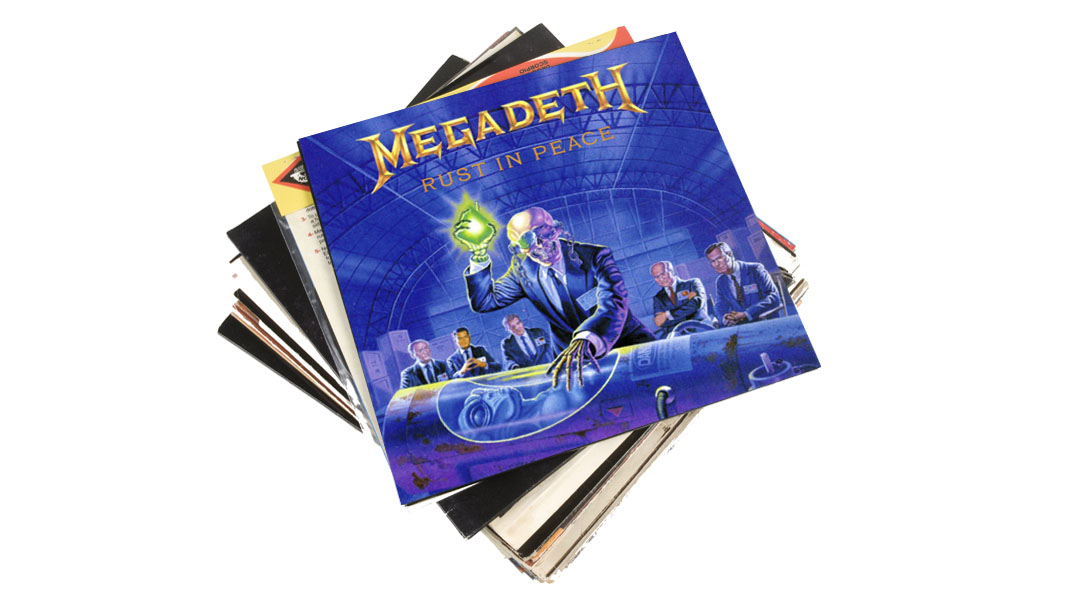
8. Megadeth - Rust In Peace (1990)
“Most people would probably pick Peace Sells… but for me, the reason I love this one is its addition of Marty Friedman, who used all these exotic scales. I try to do the same thing: learn all sorts of different phrasings.
“It’s such a great record from start to finish. On Holy Wars… The Punishment Due, Rust In Peace… Polaris, and Hangar 18, you can tell the band were firing on all cylinders on this record. There was a refocused Dave Mustaine, his writing was great, his singing was great - it’s just an awesome metal album.”
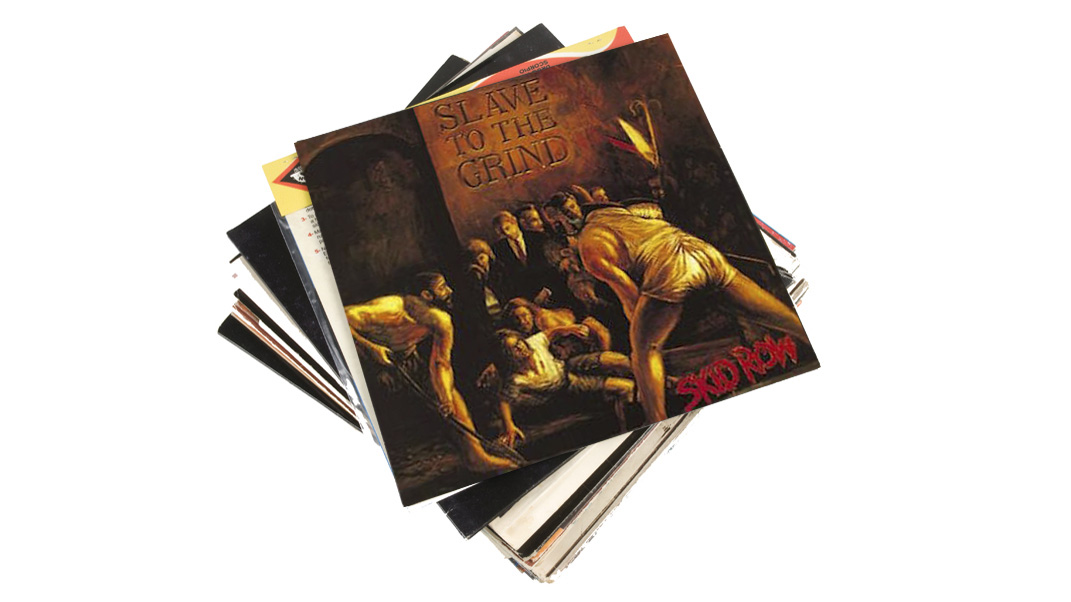
9. Skid Row - Slave To The Grind (1991)
“They came out and had so much success with the first record - and then they completely changed for this one. Think about it: going from songs like I Remember You and Youth Gone Wild to this, you can really notice the new heaviness to it.
“The lyrics went from poppy hair metal to a much deeper meaning, while guitarists Snake and Rachel Bolan’s songwriting got better. Everyone was playing great and this is Sebastian Bach at his best, in my opinion.”
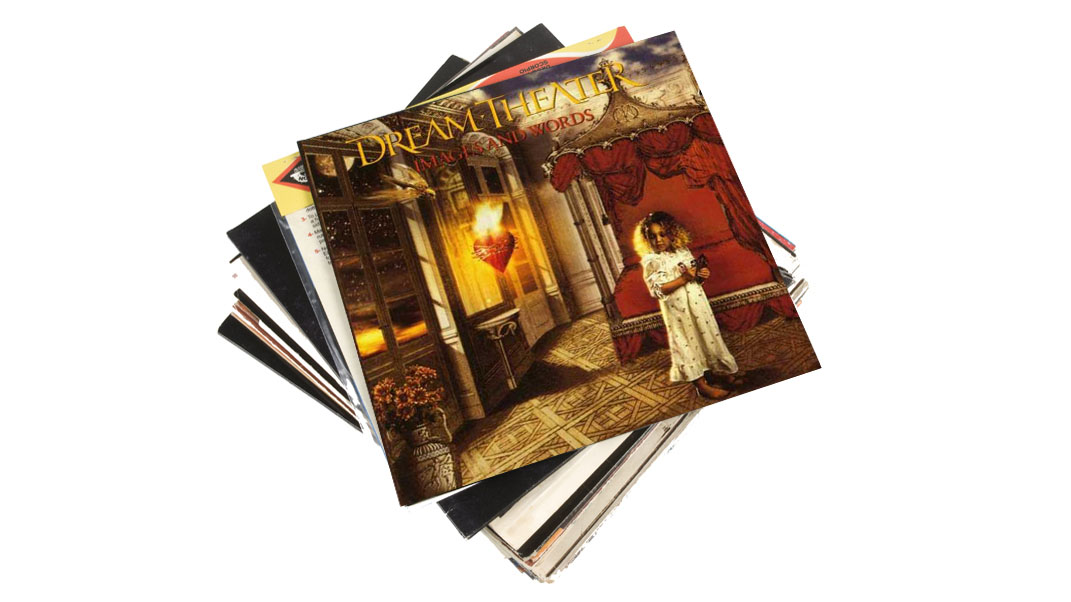
10. Dream Theater - Images And Words (1992)
“It’s one of the few records I can remember everything going on around me the first time I heard it. I was with a friend listening to the radio in the car - all of sudden it got really riffy. Then you could hear Petrucci shredding through this and that, so we drove straight to the record store so I could get it.

“This band have had a massive impact on me, especially in terms of writing. Obviously in SS we don’t have all the changes and time signatures that they do, but it’s more about writing songs that aren’t linear. My songs tend to have ups and downs, half-time then double-time, and that all comes from their influence.
“I saw them earlier last year. John invited me down to a show, and that’s actually how I got hooked up with his signature Boogie. I would love to see Images And Words in its entirety - hopefully they’ll bring that over to the States!”
Amit has been writing for titles like Total Guitar, MusicRadar and Guitar World for over a decade and counts Richie Kotzen, Guthrie Govan and Jeff Beck among his primary influences. He's interviewed everyone from Ozzy Osbourne and Lemmy to Slash and Jimmy Page, and once even traded solos with a member of Slayer on a track released internationally. As a session guitarist, he's played alongside members of Judas Priest and Uriah Heep in London ensemble Metalworks, as well as handling lead guitars for legends like Glen Matlock (Sex Pistols, The Faces) and Stu Hamm (Steve Vai, Joe Satriani, G3).
